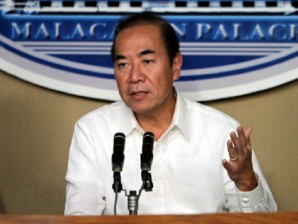MANILA, Philippines. — The roads in Palawan have been dubbed by the Department of Public Works and Highways (DPWH) as one of the “highest costing road” projects in the country.
Estimated at lP10 million, DPWH Secretary Rogelio Singson said this was higher than the “normal standard” cost.
“They are much higher than our normal standard cost. I considered them relatively one of the highest cost road projects in our country,” Singson told the Senate blue ribbon committee hearing on Thursday.
Singson said the standard cost of a two-lane road was from P25 million to P30 million per kilometer but in Palawan, the cost went as high as P40 million per kilometer.
“It could go as high as P40M. Of course they will all justify that this is a difficult terrain, tinaasan yung embankment, tabi ng bundok – all of these could come into play in coming up with that cost,” he pointed out.
Singson explained that the funding for Palawan roads came from the General Appropriations Act, Malampaya gas project, and the so-called “SONA” funds.
And based on their record, he said, a total of P6 billion from the “SONA” funds went to Palawan alone from 2008 to 2009 while only P827 million came from the Malampaya project fund since 2004.
Not only was the cost of the roads high but Singson said he also discovered that the completed roads were not “acceptable by standards.”
This was the reason why, he said he made a surprise visit in Palawan on Jan$ 24, 2011, the same day that Palawan broadcaster and environmentalist activist Gerardo “Doc Gerry” Ortega was murdered.
Ortega’s death was being linked to his expose on the alleged irregular use of the Malapaya project funds.
“I was in Palawan when Gerry Ortega was killed. In fact, I was a bit hesitant baka na-trigger because I was there to really inspect the roads,” Singson said.
“I was there. I was there. Medyo natakot din ako dahil parang sabi ko baka na-trigger ng pagbisita ko dahil I was going to inspect the roads. I know that was a very hot issue already in Palawan…” he said.
Singson said he decided to inspect the roads in the province because he refused to accept that some of the roads declared as completed were actually that and found out that “it was not just acceptable by the standards that I have set.”
“I asked the contractor to do remedial measure before we could even accept because I noticed that there’s a road segment done by a Korean company way before, which was in a much better condition than the newly completed roads,” he said.
“So by standards, (it) was not just acceptable. The shoulders were not in the proper sizes, the shoulders were much lower than the pavement itself. So sabi ko, wala namang ganyanan, napakamahal na nitong kalyeng ito. Let’s put it in proper shape,” he added.
